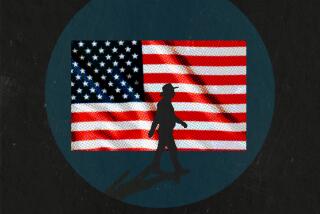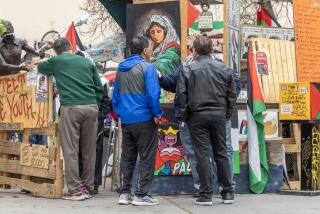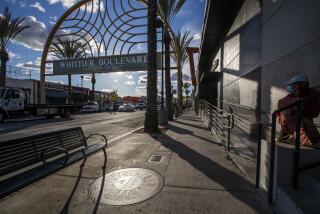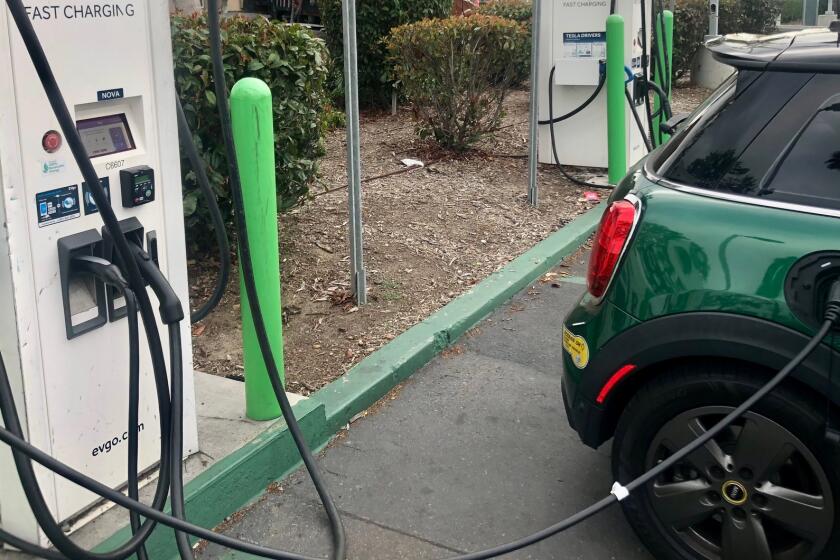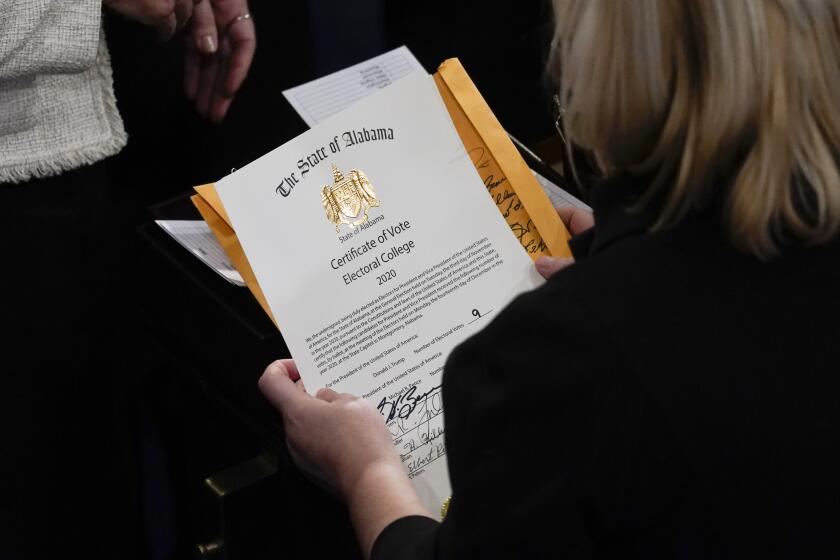Letters to the Editor: The Chicano Moratorium was a peaceful march. Over-policing turned it into a riot
To the editor: The Chicano Moratorium was indeed an inflection point in the consciousness among Mexican Americans of their place in America. It certainly was for me on that infamous day in East Los Angeles on Aug. 29, 1970.
I was invited to the East L.A. home of filmmaker Jesús Treviño, a friend I knew from Occidental College, to use it as a base from which to join the march against the Vietnam War and its high death count for Chicanos. East L.A. was composed of modest homes in a peaceful and quiet community, with small businesses along Whittier Boulevard.
I arrived late due to a car problem, but when I got there, I witnessed nothing less than a full-blown assault on the community by the Los Angeles County Sheriff’s Department. It was a police riot, not a civilian disturbance. Squad cars were careening at high speeds everywhere; police helicopters were swooping above. The local school grounds were filled with yet more squad cars, armored trucks and helicopters in waiting, as if an invasion had been planned. Fires and smoke choked the air. Broken glass was everywhere on the streets. Residents were hiding in fear in their own homes.
It became a national day of shameful overreaction by law enforcement. It made me fully realize that we Chicanos were not respected or treated justly. The injustice and inequity continue to this day.
Walter Dominguez, Los Angeles
..
To the editor: Fresh out of serving two years in the Army, I participated in the Chicano Moratorium on that fateful day in 1970. Early in my Army training, I learned U.S. intelligence had done its homework.
One day our company was called out and made to listen to several men in suits, not military, telling us of radical movements in the Los Angeles area and that if necessary, we would be deployed to restore order in the community. The maps they displayed showed familiar streets — Whittier Boulevard, Arizona Avenue, 1st Street and others.
It all seemed hypothetical. Little did I know that the military and the government were ready to act against the Chicano movement.
I was proud to walk that day with the rest of my brothers and sisters to fight against inequality and injustice, but more importantly to help stop sending Chicanos to Vietnam, where far too many died away from their home.
I am a proud veteran who has made a lifetime commitment to the Chicano cause.
Frank Medina, Los Angeles
..
To the editor: My memories of Aug. 29, 1970, are vivid.
People were marching peacefully along Whittier Boulevard. There were parents with strollers and shoppers with their bags who joined spontaneously.
We were interrupted at the park by baton-wielding police, penned in by buses that had transported supporters from out of state. There was tear gas.
I was 16. I learned much more that day than I ever would from a textbook. Thank goodness for today’s Black Lives Matter supporters.
Evelyn Torres-Rangel, San Gabriel
..
To the editor: During the Chicano Moratorium I was a young legal aid lawyer working in East L.A., and I was one of several legal observers for the march.
The march and rally were filled with families enjoying the sunny afternoon. Suddenly, riot police started moving toward the crowd. Before the officers moved in, there was no sign of any disruption, but with the movement of the officers, the people on the outer edge of the crowd started throwing bottles and rocks.
I realized that the bottles were flying over my head, so I ran to get out of the way. I went to my office, suffering from the tear gas. We lawyers spent that night helping get demonstrators out of jail. I didn’t get home until the next afternoon.
That day is etched firmly in my memory. I have continued working with the community as a legal aid lawyer ever since.
Thank you for bringing these memories back.
Toby Rothschild, Westminster
More to Read
A cure for the common opinion
Get thought-provoking perspectives with our weekly newsletter.
You may occasionally receive promotional content from the Los Angeles Times.
